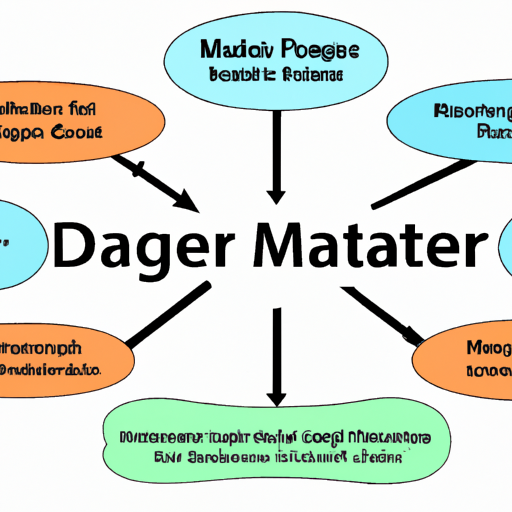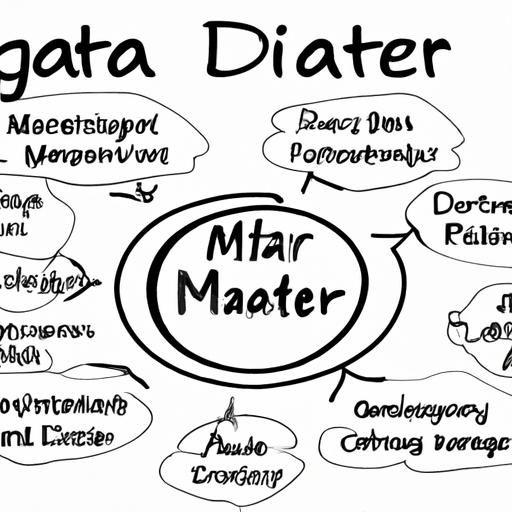The role of a data manager has become increasingly critical in today’s data-driven world. As organizations gather and analyze vast amounts of information, the need for a professional to oversee and manage this data has become essential. A data manager plays a pivotal role in ensuring data accuracy, security, and accessibility, allowing businesses to make informed decisions and drive growth. In this article, we will delve into the comprehensive job description of a data manager, exploring their primary responsibilities, required skills, and the impact they have on an organization’s data management strategy.
Table of Contents
- Data Manager Job Description:
- 1. Overview of a Data Manager Role: Understanding the Core Responsibilities and Expectations
- 2. Key Skills and Qualifications Required for a Data Manager Position
- 3. Detailed Analysis of the Data Manager’s Role in Data Collection, Storage, and Organization
- 4. Ensuring Data Accuracy and Quality Control: The Data Manager’s Importance in Data Integrity
- 5. Responsibilities of a Data Manager in Developing and Implementing Data Protection and Privacy Measures
- 6. Collaboration and Communication: The Data Manager’s Role in Coordinating with Various Stakeholders
- 7. Leveraging Data Management Systems and Tools to Optimize Efficiency and Effectiveness
- 8. Data Analysis and Reporting: The Data Manager’s Invaluable Contribution to Decision-making Processes
- 9. Essential Strategies and Best Practices for Success as a Data Manager.
- To Conclude

Data Manager Job Description:
A data manager is responsible for overseeing the collection, organization, and analysis of data within an organization. They play a critical role in ensuring the accuracy, security, and integrity of data, and collaborate closely with other teams to optimize data processes.
Key responsibilities of a data manager include:
- Developing and implementing data management policies and procedures
- Evaluating and selecting appropriate data management tools and systems
- Designing and maintaining databases
- Ensuring data quality and integrity through regular audits and troubleshooting
- Managing data backup and recovery processes
- Collaborating with cross-functional teams to identify data needs and develop solutions
- Training and guiding staff on data management best practices
Successful candidates for the data manager position must have a strong background in data management and analytics, with excellent problem-solving and communication skills. They should possess a thorough understanding of database systems and be proficient in data manipulation languages such as SQL. Attention to detail, the ability to handle confidential information, and a commitment to staying up-to-date with industry trends and best practices are essential for this role.

1. Overview of a Data Manager Role: Understanding the Core Responsibilities and Expectations
Data managers play a crucial role in organizations by ensuring the proper management and utilization of data assets. As a data manager, your primary responsibility is to oversee the collection, organization, and storage of data, ensuring its accuracy, accessibility, and security. This involves collaborating with various stakeholders to understand their data requirements and implementing effective data management strategies.
Some core responsibilities of a data manager include:
- Developing and implementing data management policies and procedures
- Designing and maintaining databases and data systems
- Creating data quality standards and ensuring compliance
- Monitoring data integrity, identifying potential issues, and implementing corrective actions
- Coordinating data collection, ensuring appropriate data entry processes are followed
Furthermore, data managers are expected to stay up to date with industry best practices and advancements in data management technologies. They should possess excellent analytical, problem-solving, and communication skills to effectively address data-related challenges and support decision-making processes within the organization.

2. Key Skills and Qualifications Required for a Data Manager Position
Skills:
- Strong proficiency in data management systems and software such as SQL, Excel, and Tableau
- Advanced knowledge of data analysis and reporting techniques
- Excellent problem-solving skills with the ability to analyze complex data sets
- Proven experience in data quality assurance and data governance processes
- Exceptional attention to detail and accuracy
- Outstanding organizational and time management abilities
- Effective communication skills with the ability to present complex ideas in a concise manner
Qualifications:
- Bachelor’s degree in computer science, statistics, or a related field
- Minimum of 5 years of experience in data management or a related role
- Demonstrated experience in leading a team and managing data projects
- In-depth understanding of data privacy regulations and compliance
- Strong analytical thinking and problem-solving abilities
- Proficiency in data visualization tools and techniques
In a data manager role, key skills and qualifications are essential to effectively handle and analyze vast amounts of data. Proficiency in data management systems such as SQL, Excel, and Tableau is crucial. Advanced knowledge of data analysis techniques combined with excellent problem-solving skills is necessary to extract meaningful insights from complex data sets. Data managers must possess exceptional attention to detail and accuracy to ensure the reliability and integrity of the data they handle.
A bachelor’s degree in computer science, statistics, or a related field is generally required for a data manager position. Additionally, a minimum of 5 years of experience in data management or a related role is desirable. Data managers are expected to lead a team and manage data projects, therefore, demonstrated experience in these areas is highly valuable. In-depth understanding of data privacy regulations and compliance is essential to ensure data security. Strong analytical thinking and proficiency in data visualization tools are additional qualifications that contribute to the success of a data manager.
3. Detailed Analysis of the Data Manager’s Role in Data Collection, Storage, and Organization
As a data manager, one of the key responsibilities is to oversee data collection, storage, and organization within an organization. This entails ensuring that all relevant data is captured accurately and efficiently. The role requires a meticulous attention to detail, as well as a comprehensive understanding of data management systems and tools.
In order to effectively carry out the data manager’s role, it is crucial to have a deep understanding of the data needs of the organization. This involves collaborating with stakeholders to identify the specific data requirements and develop robust data collection processes. Additionally, the data manager must ensure that data is stored securely and is easily accessible. This may involve implementing and maintaining data management systems, as well as establishing appropriate access controls.
- Implementing data collection strategies and processes
- Overseeing the capturing and validation of data
- Ensuring the accuracy and integrity of data
- Developing and maintaining data management systems
- Establishing and enforcing data storage and access policies
- Creating data quality standards and procedures
The data manager plays a crucial role in ensuring that the organization’s data is well-organized and easily accessible, enabling data-driven decision making. They act as the gatekeeper of data, ensuring its accuracy, integrity, and confidentiality at all times.
4. Ensuring Data Accuracy and Quality Control: The Data Manager’s Importance in Data Integrity
In today’s data-driven world, maintaining accurate and high-quality data is essential for the success of any organization. This is where the role of a Data Manager becomes incredibly important. As a Data Manager, your primary responsibility is to ensure data accuracy and maintain data integrity throughout the organization. This involves implementing robust quality control measures, monitoring data entry processes, and identifying and rectifying any discrepancies or errors in the data.
To achieve these goals, the Data Manager’s role includes a range of key responsibilities. Firstly, you will be responsible for developing and implementing data quality assurance procedures. This includes creating standardized data entry formats, establishing data validation rules, and conducting regular audits to identify and correct data inaccuracies. Additionally, you will collaborate closely with departmental employees to train them in proper data entry techniques and ensure compliance with data quality standards.
Furthermore, as a Data Manager, you will be responsible for continuously monitoring data quality metrics and analyzing trends to identify areas where improvements can be made. This may involve identifying recurring data errors or inconsistencies and working with various teams to design and implement solutions. Additionally, you will need to stay up-to-date with industry best practices and technology advancements to ensure that the organization remains at the forefront of data integrity and quality control.
Overall, the role of a Data Manager is pivotal in ensuring that accurate and high-quality data is maintained within an organization. By implementing effective quality control measures and diligently monitoring data accuracy, a Data Manager plays a critical role in enabling informed decision-making and driving the overall success of the organization.
5. Responsibilities of a Data Manager in Developing and Implementing Data Protection and Privacy Measures
A data manager plays a critical role in developing and implementing data protection and privacy measures within an organization. Their responsibilities involve a range of tasks that aim to safeguard sensitive information and ensure compliance with relevant regulations and best practices.
One of the primary responsibilities of a data manager is to conduct regular risk assessments and identify potential vulnerabilities in the organization’s data systems. This involves thoroughly analyzing the existing data infrastructure, including hardware, software, and network configurations. By identifying potential risks, data managers can develop effective strategies and protocols to mitigate them, ensuring that sensitive information remains secure at all times.
- Identify potential data vulnerabilities and risks
- Develop and maintain data protection protocols and policies
- Conduct regular risk assessments and audits
- Ensure compliance with data protection regulations
- Implement data encryption and access controls
- Train employees on data protection practices
Moreover, data managers are responsible for implementing data protection protocols and policies within the organization. They design and enforce procedures that outline how data should be collected, stored, accessed, and deleted. These protocols are crucial in maintaining the integrity and confidentiality of sensitive information and ensuring that data protection measures are consistently followed by all employees. Additionally, data managers also play a role in training employees on data protection best practices and raising awareness about the importance of data privacy within the organization.
6. Collaboration and Communication: The Data Manager’s Role in Coordinating with Various Stakeholders
Collaboration and communication skills are vital for a data manager to effectively coordinate with a wide range of stakeholders. As a data manager, you will play a crucial role in bridging the gap between different teams and ensuring seamless data flow throughout the organization.
To fulfill this pivotal role, you must possess exceptional interpersonal and negotiation skills. You will be responsible for establishing and nurturing relationships with stakeholders, such as data analysts, IT teams, project managers, and senior executives. Your ability to effectively communicate complex technical concepts in a clear and concise manner will be essential for achieving mutual understanding and collaboration.
Additionally, you will be expected to facilitate regular meetings and brainstorming sessions to drive innovation and problem-solving. Through these sessions, you will gather inputs from various stakeholders to identify data management challenges, develop strategies to address them, and define the requirements for data governance policies and procedures. Your role will also involve providing guidance and support to stakeholders in implementing and complying with data management best practices.
Overall, as a data manager responsible for coordinating with various stakeholders, your ability to foster effective collaboration and communication will significantly contribute to the organization’s success in leveraging data to drive informed decision-making and achieve strategic objectives.
7. Leveraging Data Management Systems and Tools to Optimize Efficiency and Effectiveness
Data managers play a crucial role in within an organization. They are responsible for ensuring the availability, integrity, and security of data, while also maximizing its value for decision-making processes.
One of the key responsibilities of a data manager is to oversee the implementation and maintenance of data management systems and tools. This includes selecting the appropriate systems and tools based on the organization’s needs and requirements, as well as ensuring their seamless integration with existing infrastructure. They must also stay updated with the latest advancements in data management technologies to continually improve the efficiency and effectiveness of the organization’s data processes.
Data managers are also responsible for developing and implementing data policies and procedures. This involves defining data standards, ensuring compliance with relevant regulations, and establishing protocols for data storage, retrieval, and sharing. They must collaborate with various stakeholders such as IT teams, data analysts, and business units to understand their data needs and develop solutions that meet these requirements. Additionally, data managers oversee data governance practices to establish data quality controls and streamline data workflows. By effectively managing data through proper systems and tools, organizations can achieve enhanced operational efficiency, data accuracy, and informed decision-making.
8. Data Analysis and Reporting: The Data Manager’s Invaluable Contribution to Decision-making Processes
Data managers play a crucial role in organizations as they possess the skills and expertise to effectively analyze and report on data, making valuable contributions to decision-making processes. Employing their data management knowledge, these professionals have become an indispensable asset to businesses across various industries. Their core responsibility lies in transforming complex data sets into meaningful insights that aid in making informed decisions, improving operational efficiency, and driving overall business growth.
One of the primary tasks of a data manager is to collect, organize, and clean data from various sources, ensuring its accuracy and integrity. They utilize their expertise in data manipulation and data quality assurance to identify inconsistencies, errors, and anomalies to maintain data reliability. Additionally, data managers employ statistical analysis techniques and tools to identify trends, patterns, and correlations within the data. These findings are then transformed into comprehensive reports and presented to key decision-makers to facilitate strategic planning and forecasting. By leveraging their proficiency in data visualization techniques, data managers effectively communicate their insights through clear and concise reports, charts, and dashboards, enabling stakeholders to grasp complex information easily.
9. Essential Strategies and Best Practices for Success as a Data Manager
In order to succeed as a data manager, it is crucial to implement certain strategies and best practices. These guidelines will ensure efficiency and accuracy in handling data, while also contributing to overall success in this role. Here are nine :
1. Effective data organization: Implement a systematic approach to organizing data by creating well-structured databases and folders, allowing for easy access and retrieval.
2. Data quality assurance: Prioritize data quality by regularly conducting quality checks, data cleansing, and ensuring data accuracy, consistency, and completeness.
3. Security and privacy: Make sure to adhere to all security and privacy regulations, keeping data protected from unauthorized access and implementing appropriate security measures.
4. Collaboration and teamwork: Foster collaboration among team members by encouraging open communication, sharing knowledge and resources, and working together to achieve data management goals.
5. Data governance: Establish policies and procedures to manage data effectively, ensuring data compliance, standardization, and accountability across the organization.
6. Continuous learning and skill development: Keep up-to-date with the latest advancements in data management, participate in training programs, and acquire new skills to stay relevant in this rapidly evolving field.
7. Data analysis and reporting: Develop strong analytical skills to interpret and analyze data accurately, enabling data-driven decision-making and generating meaningful reports for stakeholders.
8. Documentation: Maintain comprehensive documentation of data processes, procedures, and workflows to ensure consistency, transparency, and easy reference for future use.
9. Adaptability and flexibility: Be adaptable to changes in technology, business requirements, and industry trends, embracing new tools and techniques to enhance data management practices.
To Conclude
In conclusion, the role of a data manager is crucial in today’s data-driven world. This article has delved into the various responsibilities and skills required for a successful data manager. From overseeing the collection and organization of data to ensuring its accurate analysis and interpretation, data managers play a pivotal role in supporting informed decision-making within organizations.
The job description of a data manager encompasses a wide range of duties, including data governance, data quality management, and data security. Possessing strong analytical skills, attention to detail, and a deep understanding of data management principles are essential for individuals pursuing a career in this field. Additionally, proficiency in relevant software tools and programming languages, as well as the ability to effectively communicate complex information to both technical and non-technical stakeholders, are highly valued skills.
As data becomes increasingly abundant and complex, the demand for skilled data managers will continue to rise. Organizations across industries will rely on these professionals to drive data integrity, accessibility, and utilization. By embracing the role of a data manager, individuals can contribute to the success and growth of their organizations, ensuring that valuable insights are derived from vast amounts of data.
In summary, the position of a data manager requires a unique blend of technical expertise, problem-solving abilities, and effective communication skills. With the ever-expanding scope of data-related challenges, data managers are vital in harnessing the power of information to drive meaningful decision-making. By excelling in this role, individuals can make a significant impact in optimizing data management processes and promoting data-driven strategies for the benefit of organizations and society at large.
